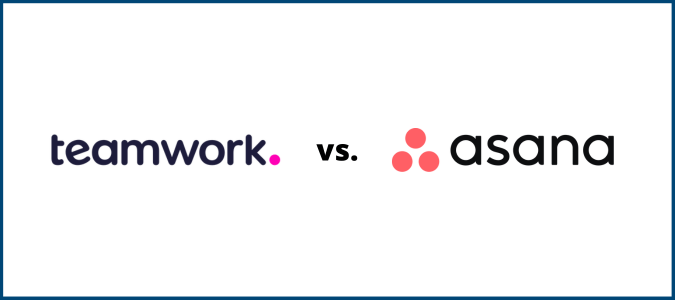ReQtest is a comprehensive solution for IT teams looking for streamlined requirements management, test management, and bug-tracking capabilities. Thanks to its highly customizable requirement module, you can easily organize, review, and prioritize requirements. Other features include data visualization for effective bug tracking and access to actionable insights for enhancing acceptance testers’ productivity. However, ReQtest’s limited automation capabilities (i.e., automated requirements QA and use case modeling) and reporting mean there’s a lot of scope for improvement, especially compared to other options on the market.

ReQtest Compared to the Best Requirements Management Tools
ReQtest didn’t make it on our list of the best requirements management tools. While it’s a fair option, it lacks the versatility and some of the more essential features necessary to simplify the requirements-gathering process. We instead recommend trying our Golden Eggs:
Confluence has top-notch data visualization capabilities and provides real-time updates to keep you on top of project progress. Sign up for a 7-day free trial of its Standard or Premium plan.
Monday.com offers Kanban boards, timelines, calendars, and over 200 intuitive templates to make requirements management more convenient and visually appealing. Get started with a 14-day free trial.
ClickUp doubles as a requirement management and project management tool, providing a wide range of features, from recurring checklists and task dependencies to custom roles and private spaces. Make a deal with ClickUp by telling them how much you’re willing to pay per member to get a custom quote.
ReQtest: The Good and the Bad
ReQtest, like any other requirements management tool, has advantages and disadvantages. It’s a user-friendly and lightweight solution that ensures robust requirements management, along with bug tracking and test management. However, it lacks efficient reporting and the ability to create custom automations, prolonging the testing process.
What ReQtest Is Good At
ReQtest is a user-friendly and lightweight solution with a complete suite of streamlined requirements management features to enable agile requirements gathering. Other useful tools, such as test management, bug tracking, agile task boards, end-to-end requirements traceability, or other desirable features will get your team productive easily and quickly.
Affordable and Easy to Set Up: ReQtest is one of the more affordable and flexible requirements management tools out there. You can sign up for a fully-featured free trial before committing, and there are options for monthly or annual payments.
Time to value is also shorter with ReQtest, as it doesn’t require additional setup, installation, or training. Your team can get started right out of the box.
Cloud-Based, Lightweight Tool: ReQtest is a fully cloud-based requirements management solution. You and your team have anytime-anywhere access to all projects and can easily plan, track, and release software if you can access a web browser.
Compared to other tools, ReQtest is more basic and lightweight, but this can actually be an advantage for teams that don’t have more robust requirements management requirements.
Streamlined and Functional Requirements Management: ReQtest’s requirements management features aren’t the most advanced, but they work well to get the job done.
For instance, Requirement Hierarchy (in the requirement module) allows you to visually understand a requirement’s context. You can also use the requirement priority feature to prioritize work, promoting the development and testing processes.
ReQtest also makes it easy to work with and organize the latest version of project requirements–view requirements and their assigned priority in a tree-based or list-based structure for a quick overview.
These features work together to keep you updated on the status of the requirements and let you monitor changes and review edits.
Customizable Requirements Authoring: ReQtest is easily one of the most customizable requirements management tools you can get your hands on.
Instead of dumping thousands of words into a document and forcing you to use tables, complicated trees, and bullets, you can organize and parse out your requirements in a hierarchy. You can then author them down to the individual requirement, making it easier to connect each requirement to its test case need, Jira Software task, or any issue that may pop up in the future.
Robust Test Management and Bug Tracking Features: Using ReQtest’s comprehensive test management module, you can create checklists and test cases to plan and implement your testing, as well as track real-time progress and make changes and improvements as needed. This significantly boosts test management productivity.
Another benefit is that you can link and track the test management process and customize it to fit your workflow.
ReQtest also offers agile and fast bug tracking. Search, filter, and categorize your bug reports and capture, manage, and track issues and bugs during the software creation process. Bug report previews without additional clicks, in-built filters to find specific bug reports, and charts to visually present the same are other advantages.
Agile Board Visualization: ReQtest provides a comprehensive and holistic view of project progress and status. You get a snapshot of your link requirements, test processes, and bug report, all presented in a single agile board that simplifies assessing your project’s progress. This is also useful for identifying bottlenecks and following up on pending tasks.
This is the main reason that makes ReQtest a great option for agile teams looking to enhance collaboration, accountability, and efficiency.
Seamless Jira Software Integration: ReQtest offers two-way synchronization with Jira Software, enabling you to transfer bugs seamlessly between the two platforms and facilitating easy test management. Each change that takes place in one system is automatically updated in the other system, ensuring up-to-date information across both ReQtest and Jira Software.
What ReQtest Is Lacking
Being a lightweight tool, ReQtest lacks certain features, making it slightly less preferable to other solutions. Reporting, dashboard design, and automation are the three most prominent areas the software devs need to improve to make it an even more effective requirements management tool.
Limited Capabilities: Many ReQtest users agree its agile board needs better reporting capabilities and a more advanced feature set. For instance, the tool isn’t very customizable. If your company has more robust testing requirements (i.e., more levels of users and permissions between different types of users), you may find ReQtest lacking.
Additionally, other requirements management tools such as Confluence and Monday.com allow you to create in-depth reports for analyzing requirements and identifying trends in projects, analyzing requirements and identifying trends in projects. ReQtest’s reporting capabilities are limited, so generating custom reports to meet specific project needs may be challenging.
Dashboard Design: Another area ReQtest needs to work on is its dashboard design. While the overall UI can be overwhelming for some users, especially those new to requirements management tools, some users don’t mind it.
Our issue is the presentation; the dashboard should provide clearer information on the findings of each software release, for example, so that it’s easier for users to understand what’s happening at any point in the project lifecycle.
Lack of automation: ReQtest recently released test automation that lets you integrate your test automation tool with the platform. However, compared to the automation capabilities of other requirements management tools, it still isn’t up to the mark.
Jira Software, for example, allows you to create custom automations using its drag-and-drop functionality to save time. In terms of requirements management specifically, ReQtest offers some useful automations for test generation, requirements QA, use case modeling, and functional sizing.
ReQtest Options and Pricing
ReQtest is a one-stop solution for requirements management, test management, and bug tracking, helping IT teams effectively manage their projects’ scope, quality, and progress.
Regarding pricing, ReQtest charges $50 per user per month and can accommodate unlimited users. Note that you have to pay a minimum of $250 monthly to use the software. For more information, you can contact the sales team.
Aside from requirements management, test management, and bug tracking, ReQtest also offers the following features, which we dive deeper into.
Test Automation Integration

If you use test automation tools/frameworks like Cucumber, Selenium, and Testing, we’ve got good news. You can easily integrate these tools with ReQtest to aggregate manual and automated test results and ensure high-quality releases.
This eliminates the need for manual work to collect test results and provides you with an aggregated view of test execution results. Then, you can create test reports based on automated and manual testing data.
Agile Board

ReQtest’s Agile board feature gives you a holistic view of your project progress. You can link to requirements, bug reports, and test tasks, simply identifying project bottlenecks and promoting easy collaboration, communication, and coordination between team members.
The Agile board is well-suited for all teams, regardless of whether you‘re working in an agile environment or a DevOps environment. You can easily create tasks, assign them to individual team members, and copy all the unfinished stickies from your previous sprint to the new sprint.
ERP Implementation Accelerator

With the ERP accelerator, you can get a headstart on your ERP project and reduce time to market. This feature aims to help users work in a structured and professional way according to industry best practices and tailor extensive processes and method SOPs based on your organization’s unique needs.
Here’s how this works: ReQtest gives you an SOP you can merge into your current process framework or customize to your organization’s specific needs. You’ll also get examples within requirements, tests, and bugs to serve as real examples demonstrating how you can use ReQtest for your specific project.
ReQtest in Summary
ReQtest will be a suitable option if your requirements management needs aren’t too complex. You’ve found your match if you’re happy with an affordable and customizable solution with a robust feature set, seamless Jira Software integration, and agile board visualization.
If you want powerful reporting and automation, check out our top recommended requirements management tools like Confluence, Monday.com, and ClickUp. Read our reviews on all five of our top picks in our guide to how and when to invest in requirements management tools.















